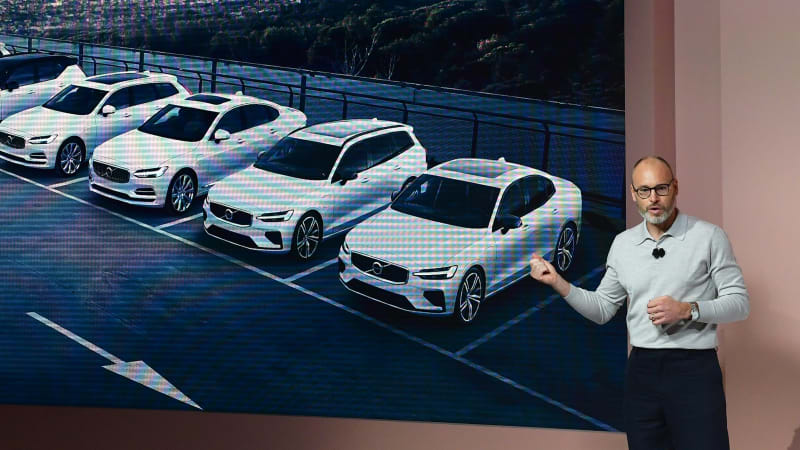
Volvo Cars Chief Operating Officer Björn Annwall BMW veered right into a public-relations mess this year when it began billing car owners monthly registration charges to warm their behinds. Volvo Car will not be making similar moves.
"If you are to bill for software application updates, it should be a step change in consumer advantage," Volvo's Chief Operating Officer Björn Annwall claimed in an interview this month. "We will not ask individuals that have acquired a vehicle for 1 million kronor ($96,500) to pay one more 10 kronor to get added heat in the seat."
While BMW will certainly no doubt have other suppliers follow in its steps-- Mercedes-Benz recently began asking buyers of its EQ electric vehicles to shell out $1,200 a year to unlock quicker acceleration, for example-- the vehicle world has begun to second-guess simply just how much cash there is to be made from the surge of software program within their hardware-intensive organization. In a 91-page deep study the topic last month, analysts at UBS fixed the total addressable market at $700 billion by 2030. That's no allowance, yet pales in contrast to the $2 trillion chance they expected formerly.
Annwall sees Volvo creating little additional earnings from software program until mid-decade. Just if significant upgrades become available-- a self-driving setting, as an example-- would certainly Volvo cost extra. "You do not need to hold the steering wheel-- now that's a step adjustment in customer advantage."
Annwall was speaking at the opening of Volvo's new tech hub in Stockholm, where the maker builds software program for selling and also advertising automobiles online. The company, which last month revealed a battery-powered sporting activity utility lorry to prosper its gasoline-era flagship, means to cease making burning cars by the end of the decade. It's mosting likely to be an uphill press: EVs composed just under a fifth of the company's deliveries last month.
Bloomberg talked with Annwall concerning Volvo's tech initiatives, the software application issues that have plagued a few of its rivals as well as the recurring supply-chain concerns keeping back the industry. Below are highlights from the conversation, which have been modified for length as well as clarity:
Large car manufacturers including Volkswagen have actually had troubles with their vehicle software program. Have you experienced similar barriers?
I won't hide the fact that we have had some problems with our software program in the automobile as well. We've been great at remedying them rather rapidly. It's a significant modification for a market that has actually been really hardware-focused. All processes have concentrated on quality control of the equipment. Now a great deal of the worth remains in the software, as well as we need to have procedures in place to assure the software application high quality.
Your target is making 50% of the software program you need in-house. How's that going?
It's working out. Fifty percent is even more of an indicator of where we want to go, that we ought to take a lot more control over this ourselves.
We have actually done a pretty good work there, above all in regards to car design, specifying which parts of the software pile we should have control over, and also where we can bring in partners that have better and more affordable options. That journey proceeds.
One area that is very essential for us clearly is whatever that involves safety, and that's something we will certainly develop in-house. There's no point for us to try to do far better voice recognition than Google. We additionally presently don't see a demand to begin creating semiconductors. It's really difficult and also needs a great deal of range.
Chips have actually remained in short supply for fairly time. Have you been hit harder than other carmakers by supply-chain issues?
During the very early stage of the pandemic, we had much better delivery ability than our competitors, and also consequently grabbed considerable market share. Yet in the last 1 to 1.5 years, we had a fairly bad distribution ability, and we lost market share. That has not been driven by demand, as our order books are swelling.
We have had a fairly clear technique that we use the exact same components throughout our cars and trucks as well as have a large commonness, which drives efficiency. Yet that likewise suggests that we are rather prone if the provider who produces that specific element remains in a district in China where there are Covid limitations, as an example. Then we are hit pretty hard.
What are you doing about that?
There are no quick solutions, but we are operating in an organized way as we have actually constantly done. We create vehicles where we market them, and we will certainly source where we produce.
We are likewise servicing establishing partnerships on particular key elements. Maybe semiconductors, it could be certain resources for batteries. Developing a direct contact with a source is very vital work, but it's not something that can be performed in 2 months or resolve every problem.
Is the supply-chain scenario starting to get worse once again?
No, as we have actually claimed, we had fairly a success throughout and after the summertime. Over the last three months, we've seen a steady and rather solid rise in manufacturing. It's on the mend. The threat is much from over. It will certainly be a little unpleasant next year as well.
For GREAT deals on a new or used Nissan check out Nissan of Sumter TODAY!
